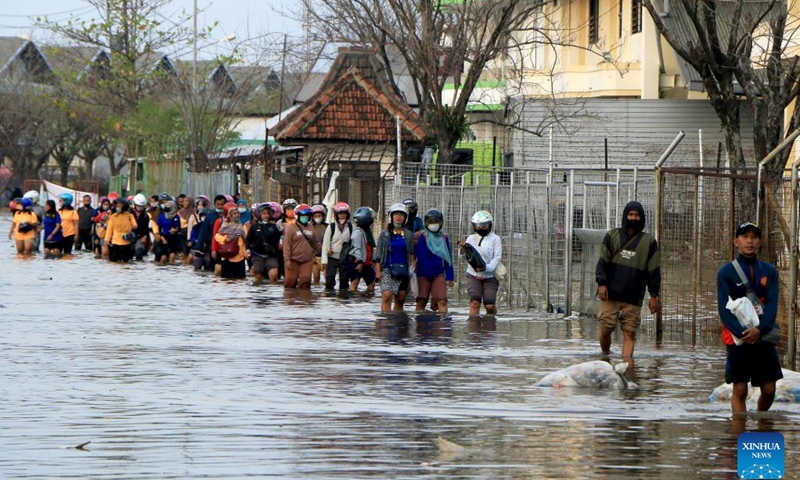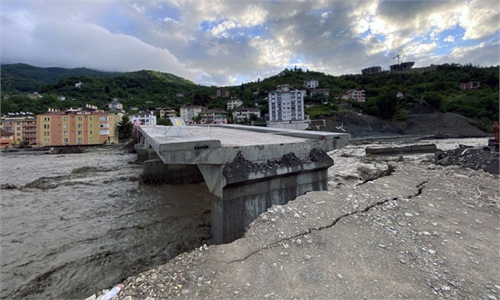Nearly 1 in 4 people globally at risk from flooding: new study

People wade through flood water after high tides at Tanjung Emas Port on the coast of Semarang, Central Java, Indonesia, June 21, 2022.(Photo: Xinhua)
Almost a quarter of the world's population are exposed to significant flood risks, according to new research published Tuesday, which warned those in poorer countries were more vulnerable.Inundations from heavy rainfall and storm surges affect millions of people every year and cause billions of dollars of damage to homes, infrastructure and economies.
And the risks are rising as climate change causes more extreme precipitation and sea level rise, as exposed populations swell.
The new study, published in the journal Nature Communications, looked at global data on flood risks from the sea, rivers and rainfall, as well as population distribution and poverty estimates from the World Bank.
It found about 1.81 billion people - or 23 percent of the people on the planet - are directly exposed to floods of over 15 centimeters in 1-in-100-year flooding. Overall, nearly 90 percent of those exposed to inundations live in lower or middle income countries, according to the study.
It also concluded the number of people living in poverty and under severe flood risk is "substantially higher than previously thought."
Researchers found some $9.8 trillion of economic activity globally - around 12 percent of the global gross domestic product in 2020 - is located in areas exposed to severe flooding.
But they said concentrating simply on a monetary value could cause a bias of attention toward higher income countries and economic hubs.
"By accounting for the poverty levels of exposed populations, we show that low-income countries are disproportionately exposed to flood risks, while being more vulnerable to disastrous long-term impacts," said the study by Jun Rentschler of the World Bank and colleagues.
AFP



